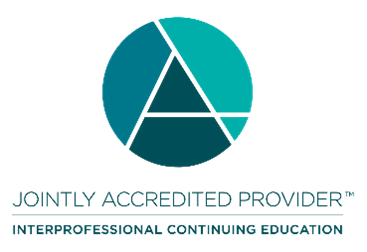Accredited Continuing Professional Education
The Department of Continuing Education and Assessment @ HSC is dedicated to creating solutions for a healthier community through effective continuing education and professional development activities for healthcare teams designed to improve competence, performance, patient outcomes, or population health in the communities we serve.
We invite you to view our current course offerings and continue to check back for upcoming activities. Click on the “Catalog” tab above.
If you are interested in partnering with us in providing quality accredited continuing education click on the "Activity Application" tab above.
Accreditations

In support of improving patient care, The University of North Texas Health Science Center at Fort Worth is jointly accredited by the Accreditation Council for Continuing Medical Education (ACCME), the Accreditation Council for Pharmacy Education (ACPE), and the American Nurses Credentialing Center (ANCC), to provide continuing education for the healthcare team.
 The University of North Texas Health Science Center is accredited by the American Osteopathic Association to award continuing medical education to physicians.
The University of North Texas Health Science Center is accredited by the American Osteopathic Association to award continuing medical education to physicians.
 As a Jointly Accredited Organization, The University of North Texas Health Science Center at Fort Worth is approved to offer social work continuing education by the Association of Social Work Boards (ASWB) Approved Continuing Education (ACE) program. Organizations, not individual courses, are approved under this program. Regulatory boards are the final authority on courses accepted for continuing education credit.
As a Jointly Accredited Organization, The University of North Texas Health Science Center at Fort Worth is approved to offer social work continuing education by the Association of Social Work Boards (ASWB) Approved Continuing Education (ACE) program. Organizations, not individual courses, are approved under this program. Regulatory boards are the final authority on courses accepted for continuing education credit.
- Physical Therapists (TBPTE)
- Public Health Professionals (NBPHE)
- Texas Licensed Marriage and Family Therapists (per Texas Administrative Code)
- Texas Licensed Professional Counselors (per Texas Administrative Code)
Recent courses
This mini conference is to focus on the interface between Health/Behavioral Health Integration via the Collaborative Care Model, SDOH & Equity.
|
Faith-based communities can play a significant and supportive role in addressing issues related to Black Maternal Health.
|
According to the CDC, older adults (CDC, 2020) are at risk for low health literacy and thus, do not seek preventive care or follow-up on suggested care.
|
Major depressive disorder comes under the "M" of Mentation of the Age-Friendly Health System model.
|
Having dementia does not always mean a person cannot make decisions for themselves. Being over 95 does not always mean a person cannot live alone successfully.
|
Having dementia does not always mean a person cannot make decisions for themselves. Being over 95 does not always mean a person cannot live alone successfully.
|

 Facebook
Facebook Twitter
Twitter LinkedIn
LinkedIn Forward
Forward






